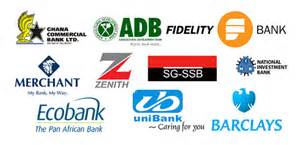Perhaps the most significant aspect of any modern economy is, the banking industry: a nation would fall into recession when banks are either unwilling to issue loans, or are themselves unable to pay up their debts.
This constantly increasing significance was heightened by the 2008 global financial crisis, when governments or public policy makers as well as the entire world became even more conscious of the need to have healthy banking institutions as a basis for strong macro-economic environments across various nations.
However, to the bankers themselves or major stakeholders in this sector - the investment bankers, stock brokers, financial analyst, wall street lobbyist and their counterparts across the globe, this awareness of its importance is not new.
Several accounts from the investigations made concerning the 2008 fiasco showed that most of the decisions made on investment: the extent to which people’s cash should be exposed to risk were quite deliberate. From the speculators, major stock brokers at Wall Street at the time, among others made millions of dollars from the bankruptcy of the such institutions as the then world’s No. 1 investment banker - JP Morgan as well as the objects of such hysteria as the then global energy firm, Enron.
On this basis, the policy makers particularly the central bankers have joined forces in their advocacy of a greater internal control for banks operating within their countries.
They are of the view that, external regulations from central banks are not enough to restrained the forces of greed and an appetite for excessive risk by some financial corporations.
According to conclusion drawn from a joint study by some leading scholars from three of Turkey’s top tertiary institutions (Marmara and Halic university respectively as well as Sisli Vocational School): Internal control is a system structured within an organization or corporation whose goal is to raise efficiency and effectiveness of activities. The system guarantees the conformity of activities within the laws, regulations and improves the reliability of financial reporting by the institution.
Recently, the Bank of Ghana, has also formed part of this group of central bankers who are calling for strict measures on internal control for its over 30 commercial banks and international banking representative offices.
In view of a proposed plan to raise the minimum capitalization for commercial banking institutions in the country from Ghc 120 to 200 million, there is no doubt that some banks in Ghana in a bid to avoid either a merger or acquisition as a result of not meeting the new figure for minimum capitalization, are more likely to push beyond regulatory boundaries in their investment or trade with the people’s money.
Hence, to ensure that this critical sector remains healthy and reliable, especially in an era when the call for funds from government to fund its ambitious economic development agenda and the private sector to complement whatever incentives are provided by the state under its stimulus package or the one-district-one-factory program, etc., is at its all-time peak.
More so, the existing issues in the country are enough source of concern for the current administration: a sick financial sector would only worsen situations and fan the flame of economic fear and hopelessly across the country even further. The nation indeed deserves better!
Â
Â





